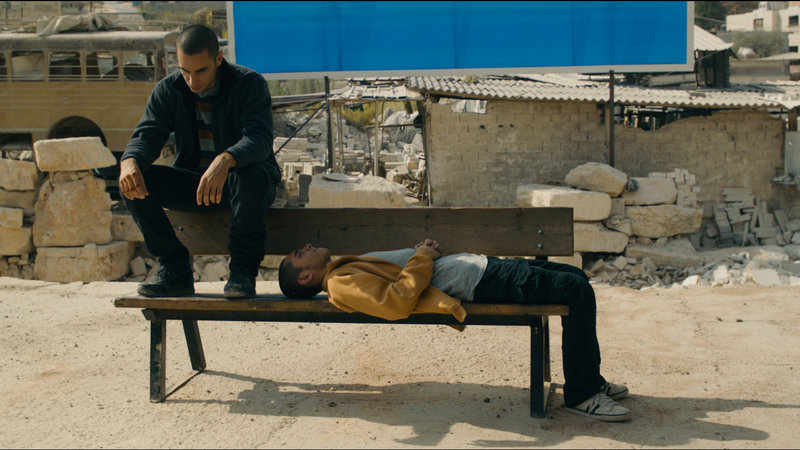The only Arab film in Cannes this year was a very good one. Omar, from director Hany Abu-Assad (Paradise Now), is a hyper-tense West Bank thriller, invested with potent noir fatalism by the gridlock of Israeli-Palestinian violence.

This tense, wrenching West Bank thriller from the director of Paradise Now took the Special Jury Prize at Un Certain Regard at Cannes.
Screened as part of NZIFF 2013
Omar 2013
The only Arab film in Cannes this year was a very good one. Omar, from director Hany Abu-Assad (Paradise Now), is a hyper-tense West Bank thriller, invested with potent noir fatalism by the gridlock of Israeli-Palestinian violence. Omar is a young baker, first seen clambering swiftly up and over the Isolation Wall, dodging bullets, negotiating zig-zagging alleys at a sprint. It won’t be the last time we see him taking the back or rooftop route, but for now he’s simply on his way to tea and biscuits at the home of his friend Tarek and Tarek’s sister Nadja, with whom he’s smitten.
The young men are involved with a third friend in a bold but strategically pointless hit on a local guard house. Soon it becomes clear that somebody close has ratted on them. The Israeli agent handling the case plants suspicion on Omar and proceeds to manipulate the fallout with quiet, merciless vehemence. In an atmosphere of intense paranoia, Omar’s choices are far from clear.
“While the first half represents an engrossing if unremarkable take on the Catch-22 situation faced by young Palestinians sick of constant humiliation, the second sharpens the sting with increasing tension and bitterness, revealing secret betrayals and attempts at self-protection that cause the characters further harm. Deliberately ambiguous in how it approaches the inexorable nexus of violence, Omar will trouble those looking for condemnation…
It’s as if he’s taken thematic elements from Westerns and film noir, using the fight for dignity and an atmosphere of doubt to explain rather than excuse heinous actions.” — Jay Weissberg, Variety